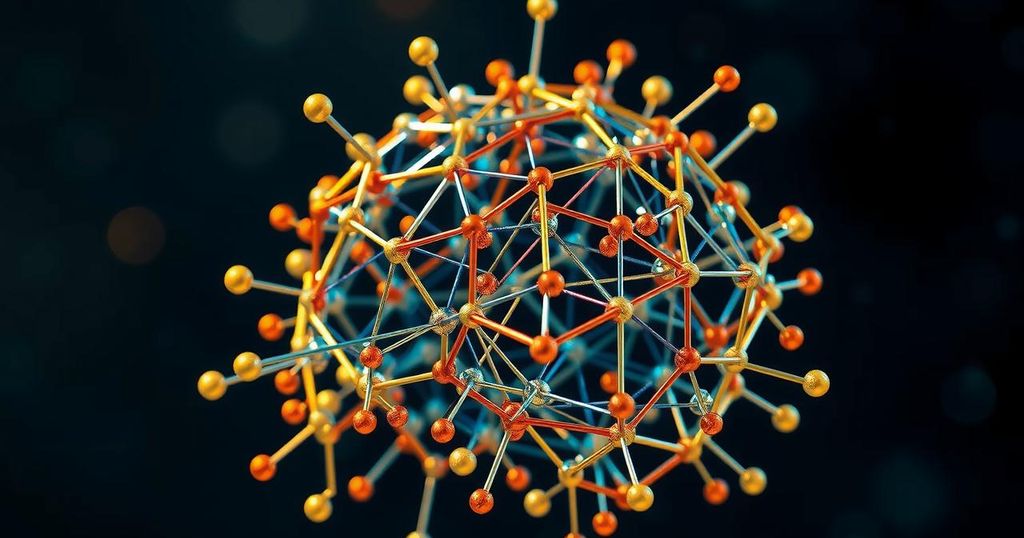AI
Science
ARTIFICIAL INTELLIGENCE, BOLIVIA, COVID-19 PANDEMIC, CRAIG RAMLAL, EMILY CONOVER, ENVIRONMENTAL IMPACT, EUROPE, GEOFFREY HINTON, HINTON, JOHN HOPFIELD, LISA GROSSMAN, NORTH AMERICA, RESEARCH, ROYAL SWEDISH ACADEMY OF SCIENCES, SCIENCE, SOUTH AMERICA, ST. AUGUSTINE, STOCKHOLM, SWEDEN, TRINIDAD, UNITED STATES, UNIVERSITY OF THE, UNIVERSITY OF THE WEST INDIES AT ST. AUGUSTINE, VENTURE CAPITAL, WEST INDIES
Liam Kavanagh
0 Comments
Nobel Prize in Physics 2024: Honoring the Pioneers of Machine Learning
John Hopfield and Geoffrey Hinton have been awarded the 2024 Nobel Prize in Physics for their pioneering work in artificial neural networks, key components behind contemporary AI technologies. Their contributions, based in physics, have had profound implications across various scientific fields, while also prompting discussions about the ethical challenges posed by AI advancements.
In a groundbreaking announcement, the Royal Swedish Academy of Sciences declared that pioneers John Hopfield and Geoffrey Hinton have received the 2024 Nobel Prize in Physics for their critical contributions to the realm of artificial neural networks. These innovative computational tools, designed to mimic the brain’s neural pathways, are at the heart of diverse technologies such as image recognition and language processing systems. The prize stirred surprise as it straddles the realms of physics and computer science, highlighting the foundational nature of physics in enabling these modern advancements.
Hopfield, who crafted the early Hopfield network in 1982, drew parallels between the workings of his neural network and magnetic materials in physics. This clever design allowed the network to store data patterns, resembling how atoms behave at an energetic level, further demonstrating the deep ties connecting physics to the development of AI technologies. Hinton expanded on Hopfield’s ideas, creating the Boltzmann machine, a neural network infused with principles from statistical physics that modeled complex systems through probabilities that mirrored the behavior of molecular particles.
As the AI field burgeons, the implications of Hopfield and Hinton’s work are felt across various scientific disciplines. Their techniques have facilitated breakthrough advancements in the understanding of black holes, the refined imaging in medical diagnostics, and the intricate science of protein folding. AI researcher Craig Ramlal articulated this revolution, noting that this award affirms the legitimacy of AI tools in enhancing our grasp of the natural world, igniting further innovations across countless fields.
However, with these leaps come challenges. The dark specter of AI misapplications haunts many researchers. Issues such as inherent biases, misinformation proliferation, and ethical concerns about job displacement loom large as society continues adapting to these rapid technological shifts. Hinton himself expressed a profound surprise at the accolade, reflecting a humble acknowledgment of the unexpected journey these neural networks have undertaken.
As we forge ahead into an era where AI’s tentacles stretch into nearly every aspect of life, the legacy of Hopfield and Hinton will undoubtedly inspire future generations, calling for cautious optimism amidst grave considerations regarding the responsibilities tethered to such potent technology.
The Nobel Prize in Physics for 2024 awarded to John Hopfield and Geoffrey Hinton marks a historic recognition of artificial intelligence’s intersection with fundamental physics. This highlights not only the computational power of neural networks but also their underlying principles deeply rooted in physical laws. Hopfield’s early neural network models and Hinton’s advancements have formed the bedrock of modern AI systems, emphasizing how these technologies, initially viewed through the lens of computer science, bear essential geological connections to physics. This evolving narrative entwines scientific exploration with societal impacts, setting the stage for ongoing debates about ethical usage and technological advancement. As AI technology becomes ever more embedded in our daily lives, discussions around its implications are crucial in navigating its challenges and harnessing its benefits while mitigating potential harms.
The 2024 Physics Nobel Prize awarded to John Hopfield and Geoffrey Hinton underscores a seismic shift in scientific recognition, bridging the disciplines of physics and artificial intelligence. Their foundational work on neural networks has catalyzed revolutionary advancements across a spectrum of fields, from astrophysics to medicine. However, as society grapples with the multi-faceted impacts of AI, it remains imperative to address ethical concerns and potential misuses of this transformative technology, ensuring that the benefits of AI can be equitably shared while mitigating inherent risks.
Original Source: www.sciencenews.org




Post Comment